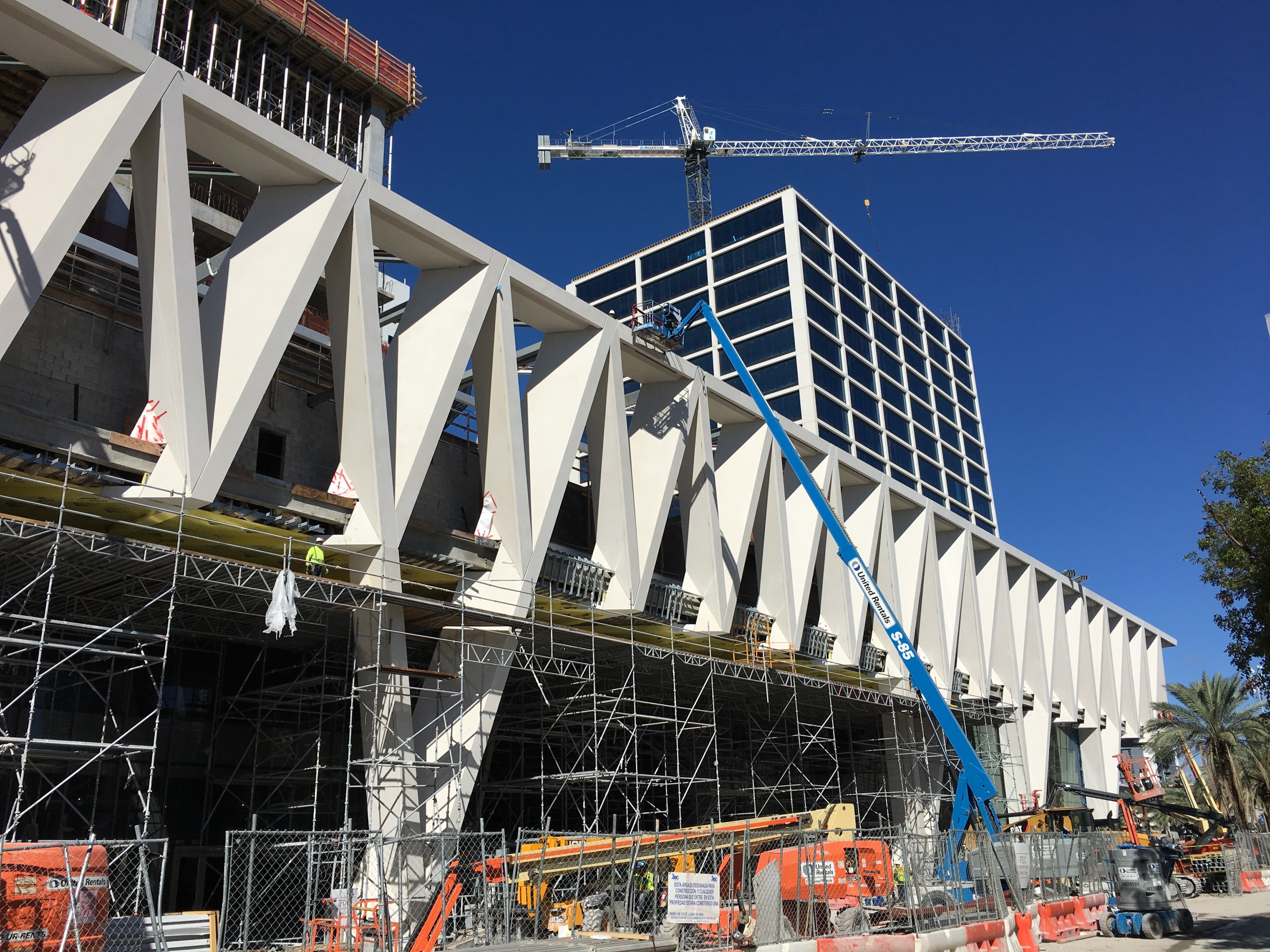Sponsored post: Spin and Better Block Foundation are calling on designers, urbanists and anyone who cares about safe and livable streets, to submit ideas for a new generation of multimodal parklets. Winning designs will get built and installed in Denver in September. Let’s take back our streets from cars, one space at a time. Apply now: https://www.spin.pm/streets
Miami knows it must grow its rail system to become a global city in the 21st century — and a foreign frenemy may help.
Chinese government officials want Miami-Dade Mayor Carlos Giménez to build high-speed rail that could be a cheaper alternative to Metrorail, the transit system that has been operating in crisis and a local $3.6-billion rapid transit plan has stalled. The Trump administration and Tallahassee are in no hurry to help it out, so South Florida leaders are increasingly looking at private — and sometimes foreign — investment to expand a rail system along multiple routes.
In April, former Mayor Maurice Ferré, a registered lobbyist for the Chinese-backed magnetic-levitation or "maglev" rail line, brought a delegation of officials from the Asian superpower to meet with Giménez, according to the Miami Herald.
The group pitched the Giménez administration on adding a maglev line on NW 27th Avenue, a major north-south artery parallel to Interstate 95, between Hard Rock Stadium in Miami Gardens and downtown Miami.
Extending the Metrorail along the avenue would cost $1.8 billion in construction and land acquisition, according to a state analysis — roughly $140 million per mile. Meanwhile, another review found that maglev lines cost between $145 million and $250 million per mile.
But Ferré insisted that Chinese technology would be cheaper because it requires less maintenance and labor costs in the initial manufacturing. Reminder: he is a lobbyist.
Still, the technology is intriguing enough that later this year, Miami Gardens Mayor Oliver Gilbert will lead an American delegation of politicians and transportation leaders on a taxpayer-funded jaunt to Hong Kong, Shenzen, and Tokyo to see maglev train lines and factories for themselves.
“There’s a value in seeing how technology works with people, and not just on paper,” Gilbert told the Miami Herald. “There’s a value in seeing how it moves people, and experiencing it.”
That's not the only Florida project that could come with private backing.
The Malaysian-based casino conglomerate Genting wants to build a rail line over the MacArthur Causeway that links downtown Miami and Miami Beach. Last year, two lobbyists who work with Genting accompanied Giminez on a trip through Asia that included a stop at a Chinese train factory and a visit with the head of Genting to talk about the rail link.
And on Monday, Central Florida and Virgin Trains officials broke ground at Orlando International Airport on the second phase of a privately funded passenger line linking Orlando, West Palm Beach, and eventually Tampa. Virgin Trains — formerly known as Brightline — already runs a line between West Palm Beach and Miami at a speed of 79 miles per hour.
Virgin and the private equity firm Fortress Investment Group are pouring $4 billion into the infrastructure project which will require more than 10,000 construction workers to lay down 170 miles of new track.
Trains could reach a high of 125 miles per hour making the trip between Orlando and Miami a mere three hours when the new line opens in 2022.
That's almost as fast as the whiplash Floridians experienced when then-Gov. Rick Scott refused $2.4 billion in Obama administration stimulus funding for a high-speed rail network in 2011. Scott now supports the privately backed rail project and he and his wife have invested more than $3 million in a credit fund run by Fortress.
Virgin Trains CEO Patrick Goddard promised the project "will change mobility in this state forever."
Better late than never.





